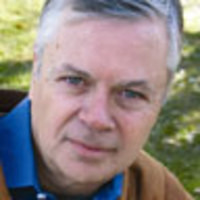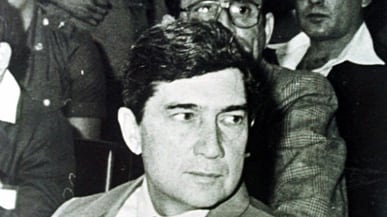It was a simple whim that saved my life: I had finished reporting in Barbados quicker than anticipated and so I changed my flight to Havana, getting on an earlier plane. Two days later, a terrorist blew up the Cuba-bound flight I had been booked on.
All 73 people aboard perished.
I would have been the 74th.

On Monday, the man believed to have masterminded this horrific attack in 1976, Luis Posada Carriles, will go on trial in El Paso, Texas. But perhaps because he spent most of his adult life working for the Central Intelligence Agency, he is not being tried for that crime.
Nor is he being judged for his apparent role as mastermind of a string of bombings in Havana, including one at a hotel that killed an Italian tourist. He is only being charged with violating immigration law and obstructing justice.
In an age when terror and terrorism are said to be the greatest global threats to civilization, this case perfectly illustrates how elastic the definition of those terms has become. Any violent act against the United States or the West is decried as terrorism, while some true terrorists are either lionized or, at worst, subject to prosecution for relatively trivial offenses.
“He worked for the CIA at a time when elder Bush was CIA director and had a special interest in Latin American issues,” said Blake Fleetwood, a journalist who has covered the case for years and once conducted a taped interview in which Posada Carriles freely admitted to terrorist crimes. “He knows so many secrets about the workings of the U.S. government that the government has been very slow to prosecute him. They're kind of hoping he'll die before this goes any further.”
All 73 people aboard perished. I would have been the 74th.
“Obviously someone is protecting him,” Fleetwood said. “We trained him. He's our boy. I think he's still a hero to some people [at CIA headquarters] in Langley. He did what we asked him to do, and we don't leave our fallen soldiers on the battlefield. We protect them, and there's a tremendous sense of loyalty to him. He did what we trained him to do.”
Any outcome of this trial will be an outrage. A verdict of not guilty will be another in a long string of victories for the proud assassin. He would even be able to claim victory if the jury finds him guilty, because it will mean that, at age 82, he has once again escaped direct responsibility for his crimes. He is a poster child for the hypocrisy of today's anti-terror campaign.
Posada Carriles was born in Cuba, and like many of his generation, fled the Castro regime, resolving to do all he could to destroy it. Unlike most of his compatriots, however, he chose the route of armed violence.
He was among the dreamers who organized the Bay of Pigs invasion in 1961, and after its failure he began a long career in the service of the U.S. government. He was trained in sabotage and commando tactics at Fort Benning, and then joined the Florida-based CIA team charged with deposing or assassinating Fidel Castro.
After differences with the agency, reportedly over his association with drug traffickers, he relocated to Venezuela, where he quickly became chief of operations for the state intelligence agency.
It was there that he allegedly organized the bombing of Cubana Airlines Flight 455, which departed from Caracas, stopped in Barbados—where I was supposed to board—and then continued on to its doom. He was arrested and imprisoned in Venezuela, but mysteriously escaped. In the 1980s, he turned up back on the CIA payroll, working at an airport in El Salvador supervising clandestine arms shipments to the Nicaraguan Contras. His boss was another legendary CIA man, Félix Rodríguez, who directed the capture and execution of Che Guevara in Bolivia.
Later, Posada Carriles served for a time as a security adviser to the murderous government of Guatemala; allegedly involved in dozens of bombings in Central America as well as attacks on hotels in Cuba. In 2000, he was arrested in Panama with a cache of explosives he had hoped to use to kill Castro, who was visiting Panama. He was tried, convicted, and imprisoned, but in 2004 President Mireya Moscoso, a close ally of the U.S., pardoned him in her last days in office. Panama's supreme court later declared the pardon null, and ordered that the officials who had spirited Posada Carriles out of the country be charged with abuse of authority.
The aging terrorist sought to live out his remaining years in the U.S., but many of his protectors are no longer powerful, and prosecutors began closing in on him. The FBI turned out to have shredded most of its files on the case, but his apparently illegal entry into the U.S. came back to haunt him. A congressional subcommittee and a grand jury in New Jersey tied him to various crimes.
In 2005 he was indicted by a grand jury in Texas for illegally entering the U.S., but the charge was later dismissed. Another judge rejected an attempt to extradite him to Venezuela, where Foreign Minister Nicolas Maduro has called him "the bin Laden of the Americas." The judge said there was a danger he might be tortured there. That rationale seems ironic in light of the reported American practice of sending prisoners—without trial or conviction—to Poland or Lithuania or Thailand or Egypt or Romania for the express purpose of being tortured.
Although Posada Carriles has long relied on powerful American friends, the Department of Justice recently described him as "an admitted mastermind of terrorist plots and attacks." The Department of Homeland Security has reportedly placed him on its no-fly list, a comforting step considering that he is probably the world's most famous plane bomber. Yet no one can say what will happen to him if he is convicted of the charges against him in Texas, which include an allegation that he obstructed an investigation of “international terrorism” and that he committed perjury by hiding his involvement in the Havana bombings when entering the U.S.
Posada Carriles is wanted on murder charges in both Cuba and Venezuela, but the U.S. is unlikely to deport him to either of those countries. Half a dozen other countries, informally approached by the U.S., have said they would refuse to accept him. He would fall into a category of his own: a terrorist no longer fully welcome in the country that sponsored him for years, but not welcome anywhere else either—except in Miami, where some militant anti-Castro activists consider him a hero.
In an interview with The New York Times several years ago, Posada Carriles was asked about the Italian tourist who was killed in one of his bombing attacks in Havana. He said it was “a freak accident, but I sleep like a baby.” Probably he would have said the same about me, had I not changed my ticket for the Cubana 455 flight.
Stephen Kinzer is an award-winning foreign correspondent. His new book is Reset: Iran, Turkey and America's Future.





